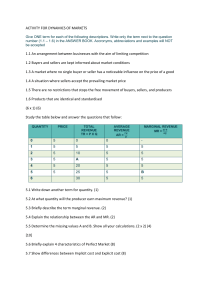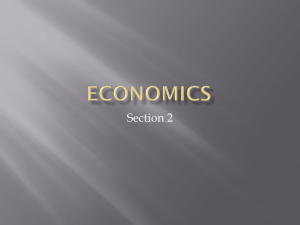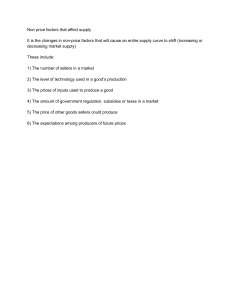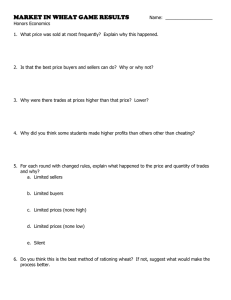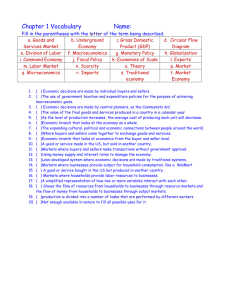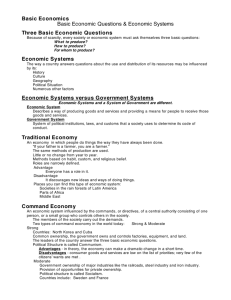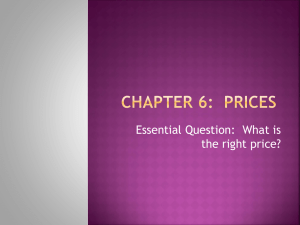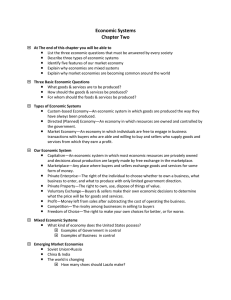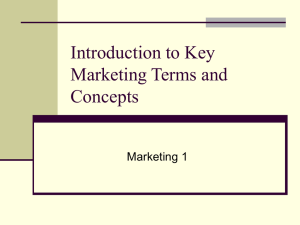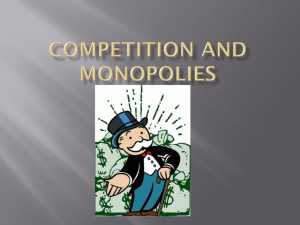Private Property Rights in a Market Economy
advertisement
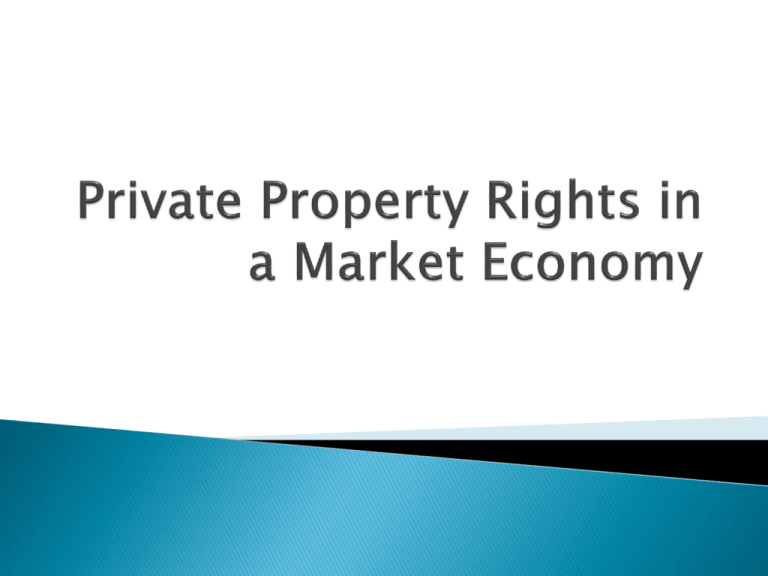
No economic system is completely command or completely market. There’s a mixture of government in a market economy. There’s also a mixture of markets in a command economy. Hence the name . . . Mixed economy. Private property ◦ Individuals & private businesses, not government, own most land & capital. ◦ Right to own property provides incentives to owners to take care of property and to invest in it. ◦ It also encourages the efficient allocation of resources and promotes economic growth. Free Enterprise ◦ Means that, within legal limits, individuals are free to open businesses and to produce and sell the goods and services of their choice. ◦ Individuals are also free to work where they want and to buy the goods and services they want and to buy them with their earnings. Self Interest ◦ Drives people to get the best job they can, get the most for their money, to earn the most in their business. ◦ When everyone does this, resources are used to produce goods/services everyone wants – a desirable outcome. ◦ Self interest is not the same as selfishness and does not mean that people cannot and do not help others… ◦ People who act in their own self interest are guided by “an invisible hand” to do what is best for society as a whole (according to Adam Smith – The Wealth of Nations) Competition ◦ Keeps prices in line with costs of production. ◦ If one seller raises prices in an attempt to earn excessive profits, competition from other sellers will drive the prices down. ◦ Pure competition assumes that sellers can easily leave one business and easily enter another one. ◦ Competition among buyers prevents any one buyer from controlling prices by refusing to buy something. System of Markets and Prices ◦ Markets bring together buyers and sellers of goods/services. ◦ In a market system forces of supply and demand, not government, determine prices. ◦ If there is a surplus of good available at the going price, price will fall. ◦ If there is a shortage of goods available at the going price, the price will rise. Limited government. ◦ Although market economies can operate in most respects without government interference, there are important roles for government to pay. ◦ At a minimum, government is needed to define and enforce property rights and to provide some goods and services such as national defense that are not provided efficiently by markets.
